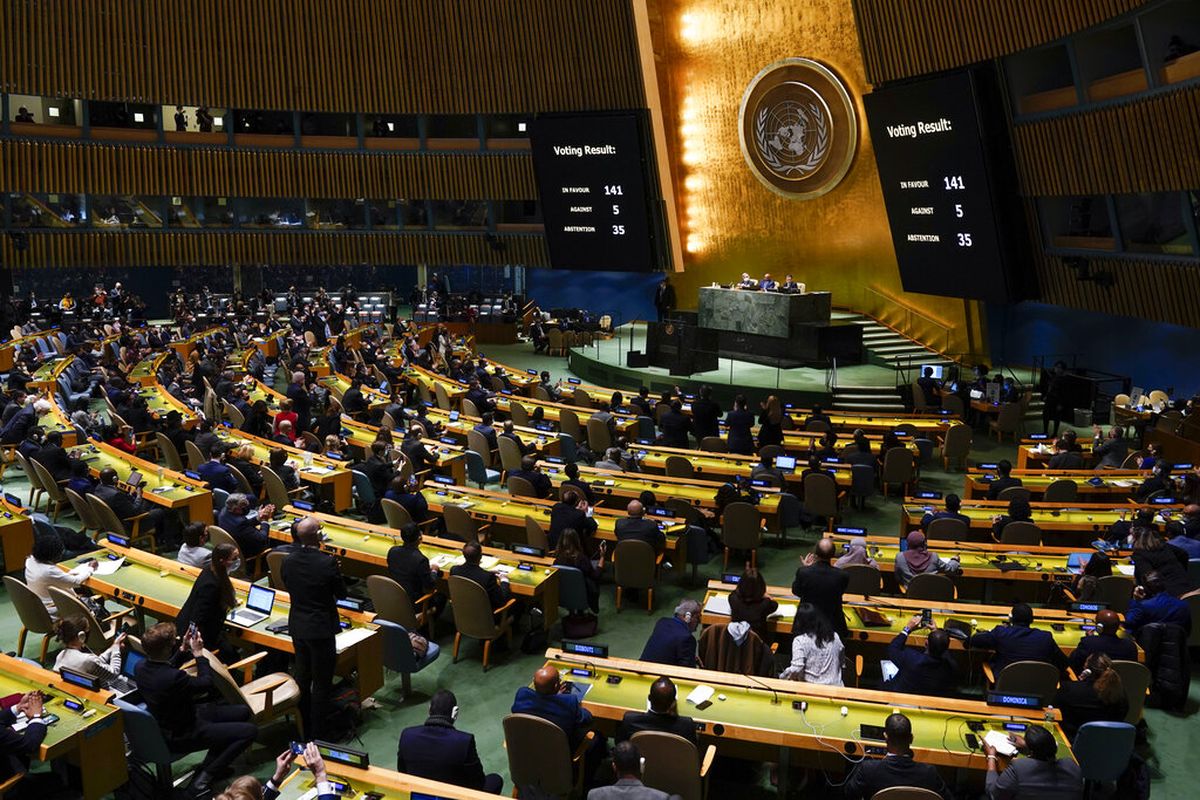
Joel Ng, a research fellow at the S. Rajaratnam School of International Studies in Singapore, called it “disappointing” that Southeast Asian states aren’t defending the principle of non-interference “more vigorously.”
According to Ng, most of the governments have gone as far as they want to in this crisis. They will have to comply with Western sanctions on Russia, but he reckons it’s very unlikely others will join Singapore in imposing their own unilateral measures against Moscow.
There also appears to be much debate about why the war in Ukraine started in the first place, with viewpoints often influenced by national sensitivities. According to the latest State of Southeast Asia survey, published last month by the ISEAS-Yusof Ishak Institute, opinions are split between the US and China, but the majority of Southeast Asians are determined not to be dragged into the orbit of either superpower.
Also read: ASEAN, Russia Hold First Joint Naval Exercises Off Coast of Indonesia’s Sumatera
“While against Russia’s use of military force toward civilians and the violation of Ukraine’s sovereignty, the regional countries should also speak up on the root cause of the war: the extension of NATO to Eastern Europe that provokes Russian insecurity,” argued Evi Fitriani, a professor of International Relations at Universitas Indonesia.
Critics call for a sharper response
Yet there is also recognition that not criticizing Putin’s motives in Ukraine — where the war threatens to make a mockery of international law and is also testing Western resolve to defend the sovereignty of smaller states — could have a direct impact on Southeast Asians themselves.
“Unless we, as a country, stand up for principles that are the very foundation for the independence and sovereignty of smaller nations, our own right to exist and prosper as a nation may similarly be called into question,” Singapore’s Foreign Minister, Vivian Balakrishnan, has said.
This, indeed, appears to be the dividing issue. For some, the war in Ukraine is a distant issue which Southeast Asians can do little to influence, and any involvement in would only bring unwanted difficulties upon themselves. For others, the Ukraine war has very real implications for the region.
With the exception of Singapore, it is striking that “most states are in utter denial that Russia’s justification for an invasion of Ukraine undermine core principles of international law and create very dangerous precedents,” said Abuza.
“If Russia can make sweeping unilateral claims to the territory of a sovereign state based on cultural affinity and history, then what’s to stop China from doing the same thing?” he added.
Simak breaking news dan berita pilihan kami langsung di ponselmu. Pilih saluran andalanmu akses berita Kompas.com WhatsApp Channel : https://www.whatsapp.com/channel/0029VaFPbedBPzjZrk13HO3D. Pastikan kamu sudah install aplikasi WhatsApp ya.































